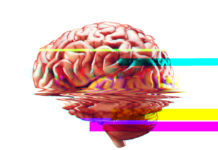 Up to 42 percent of all treated cases of depression do not respond to antidepressants. While the reasons for this have been a mystery, a new study on how diet affects patient response to medications suggests that consuming fish fatty acids can help. The study, published in the journal European Neuropsychopharmacology, shows that increasing intake of fatty fish (and possibly fish oil) appears to increase medication response rates in patients who do not normally respond to antidepressants.
Up to 42 percent of all treated cases of depression do not respond to antidepressants. While the reasons for this have been a mystery, a new study on how diet affects patient response to medications suggests that consuming fish fatty acids can help. The study, published in the journal European Neuropsychopharmacology, shows that increasing intake of fatty fish (and possibly fish oil) appears to increase medication response rates in patients who do not normally respond to antidepressants.
According to lead researcher Roel Mocking, he and his colleagues took a closer look at two apparently unrelated measures – the metabolism of fatty acids and the regulation of stress hormones – that are often unbalanced in people suffering from chronic depression.
“Interestingly, we saw that depressed patients had an altered metabolism of fatty acids, and that this changed metabolism was regulated in a different way by stress hormones.”
The researcher tested 70 patients diagnosed with depression and compared how they responded to fatty acids with 51 healthy participants. They gave the depressed patients 20mg of a daily antidepressant for 6 weeks, and in those who did not respond to the SSRIs the dose was gradually increased up to 50mg/day.
They found that patients who didn’t respond to antidepressant treatment often had abnormal fatty acid metabolism. Those who ate fatty fish at least once a week had a 75% chance of responding to antidepressants, whereas those who never ate fatty fish had only a 23% chance of responding to antidepressants.
“Fatty acid metabolism could be influenced by eating fish, said Mocking, “which may be a way to improve antidepressant response rates.”
Source: R.J.T. Mocking, H.F. Verburg, A.M. Westerink, J. Assies, F.M. Vaz, M.W.J. Koeter, H.G. Ruhé, A.H. Schene. P.2.b.031 Longitudinal Interplay Between Paroxetine Response, Cortisol and Fatty Acid Metabolism in Major Depressive Disorder. European Neuropsychopharmacology, Vol. 24, Supplement 2, Pages S396–S397, October 2014.
Journal Link: http://bit.ly/1vFyXKU














